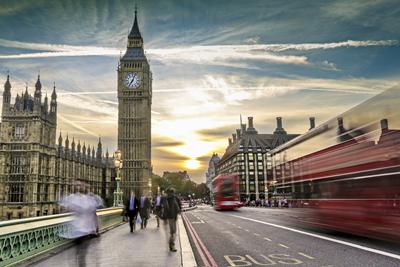People debate devolution in UK’s first ‘Citizens’ Assembly’

People in the Solent area have debated and voted on proposals for a new devolved body in the region, as part of the UK’s first ever ‘Citizens’ Assembly’ on local democracy, co-organised by the University of Southampton.
Residents called for real public involvement and further debate in decisions on devolution during the pilot assembly organised by politics academics at Southampton, together with colleagues at the universities of Sheffield, Westminster, University College London and in conjunction with the Electoral Reform Society.
Over two weekends of discussion and voting, around 30 participants reached their conclusions through a process of engagement with the details of different potential devolution arrangements. The participants voting reflected that, if there were to be a new devolved body:
- it should cover the Hampshire and Isle of Wight area, instead of other options like the South East, or the Solent.
- health and social care integration should be the most important priority for the body, followed by public transport, business support and housing investment.
On devolution plans for regions currently being debated by the Government:
- the participants were evenly split on whether they would vote for or against the proposals
Professor Will Jennings from the University of Southampton, Co-Investigator for the project, says: “This Assembly has challenged the myth that people are disengaged from politics. When they are given the chance to assess a range of different positions and possibilities, they do it with gusto - people are more than capable of grappling with complex questions about the way we are governed.
“This marks an important contribution to the conversation about politics and democracy in this country. We have shown there is a real potential for a new way of doing things.”
Professor Gerry Stoker, Professor of Politics and Governance, also at Southampton, comments: “Instead of devolution being a stitch-up between local and national politicians, we need engagement from citizens to bring new insights and new ideas into the debate. Our Assembly has shown one way that can be done.”
The participants were given unique access to national and local experts to aid them in reaching their own conclusions on how Hampshire and the Isle of Wight should be governed. The project has been closely followed by local councils across the region. Local politicians and other experts gave evidence to the Assembly South, including Councillor Roy Perry, leader of Hampshire County Council.
The project is backed by Alan Whitehead, MP for Southampton Test and has seen participation from other key local figures, including Councillor Stephen Godfrey, Leader of Winchester City Council, Steven Lugg, Chief Executive of the Hampshire Association of Local Councils, and Mike Smith, Director of Cities for Cofely UK and former Director of Finance for Southampton City Council.
The ‘Assembly South’ pilot is only the second such event in the world to include both citizens and politicians as participants in the process, after the Republic of Ireland. Five local councillors debated alongside members of the public for the four days.
The overall project, entitled Democracy Matters is funded by the Economic and Social Research Council (ESRC). Hampshire and the Isle of Wight is one of two pilot areas taking part, alongside Assembly North in Sheffield. Citizens in the parallel Assembly for the South Yorkshire region gathered on the weekend of 7 November to reach their conclusions. The 31 participants similarly called for stronger powers for South Yorkshire, as well as a Yorkshire-wide elected Assembly and more democratic engagement in the process.
These Assemblies come in response to the sweeping constitutional changes currently facing the UK, a year on from the Scottish referendum and with key questions of devolution, English Votes for English Laws and the EU referendum currently high up the agenda.